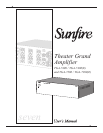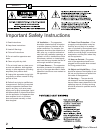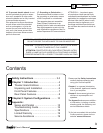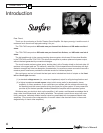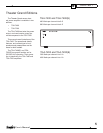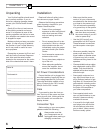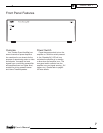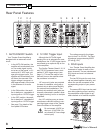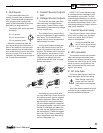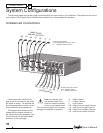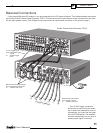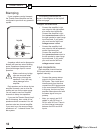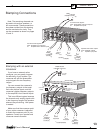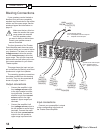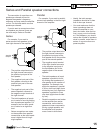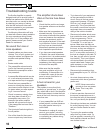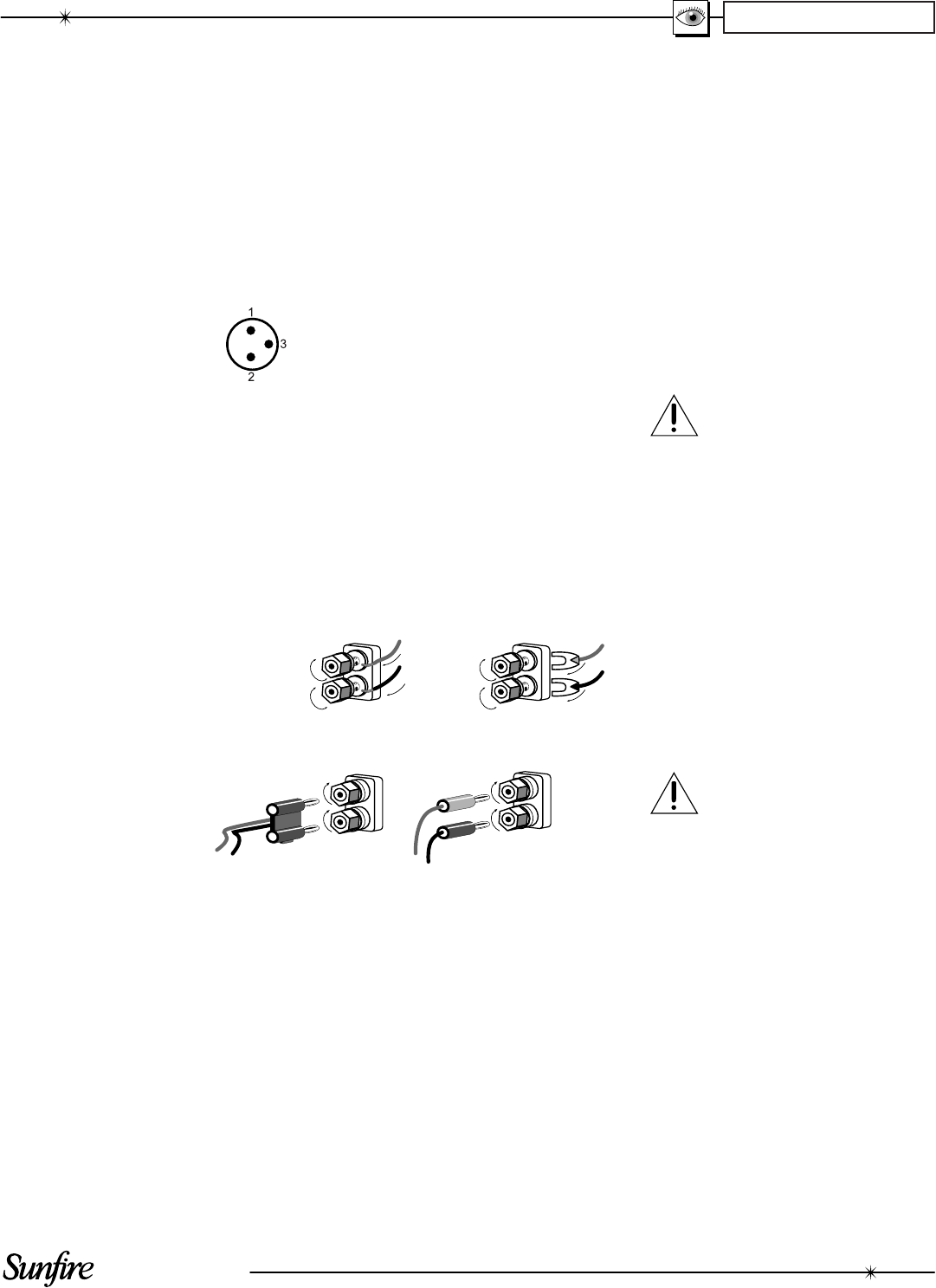
User's Manual
9
4. XLR Inputs
If your pream pli fi er has XLR
out puts, connect them to these XLR
inputs. These balanced connections
offer su pe ri or noise rejection com-
pared to the unbalanced RCA inputs,
particularly for long cable runs.
The female XLR inputs are wired
as follows:
Pin 1 is ground
Pin 2 is positive (hot)
Pin 3 is negative (cold)
Balanced connections pass the
input signal along two conductors. If
there is any external noise and in ter -
fer ence passing into the audio lines,
both conductors will receive the same
amount of noise. This noise is then
rejected in the balanced input stage of
the Theater Grand Amplifi er.
+ -
+ -
+
-
+
-
Banana
SpadeBare Wire
Dual-Banana
5. Current Source Outputs
and:
6. Voltage Source Outputs
The front left and front right chan-
nels each have a Voltage Source
output and a Current Source output.
The remaining channels have Voltage
Source outputs only.
The Voltage Source outputs have
a source im ped ance of ap prox i mate ly
zero ohms. The Current Source
outputs have a source impedance of
ap prox i mate ly one ohm.
The top post of each binding post
pair is the positive output, and con-
nects to the positive (red) post of your
speaker. The bottom post of each pair
is the negative, and connects to the
negative (black) post of your speaker.
The posts can accept bare wire,
spade terminals, and dual or single
banana connectors.
According to your musical taste,
you may select the Current Source for
driving elec tro stat ic, pla nar mag net ic
or ribbon speakers. Se lect the Volt-
age Source for driving sub woof ers.
For cone based sys tems, use either.
For a biwired system, use the Current
Source for midrange and treble driv-
ers, and use the Voltage Source for
the subwoofer(s). These are sugges-
tions only. By all means, please feel
free to ex per i ment with other wiring
options. (See page 14.)
NOTE: The Current Source output
is a Voltage Source modifi ed to yield
an impedance of one ohm. This cor-
re sponds ap prox i mate ly to a vacuum
tube amplifi er's output im ped ance and
constitutes the dominant factor in the
soundstage delivery of classic vacuum
tube power amplifi ers.
7. Current Source Fuses
Each Current Source output has an
in-line fuse to protect your speakers.
If one ever opens, there will be no
output to that speaker.
Unplug the amplifi er from
the AC mains power supply
if you ever have to change
a fuse.
8. IEC connector
The amplifi er comes with a detach-
able Linecord which attaches here.
Make sure it is fi rmly pushed in place.
Connect the other end to an AC outlet
which is properly confi gured for the
type of plug and has the correct volt-
age for your model.
9. AC Line fuse
If this fuse fails, replace it with the
exact same type and current rating.
Note: Always unplug the
power cord from your AC
outlet before re mov ing the
fuse.
With a fl at ended screwdriver, push
the fuse carrier in slightly and turn it
counter-clockwise to release.
CHAPTER 1



